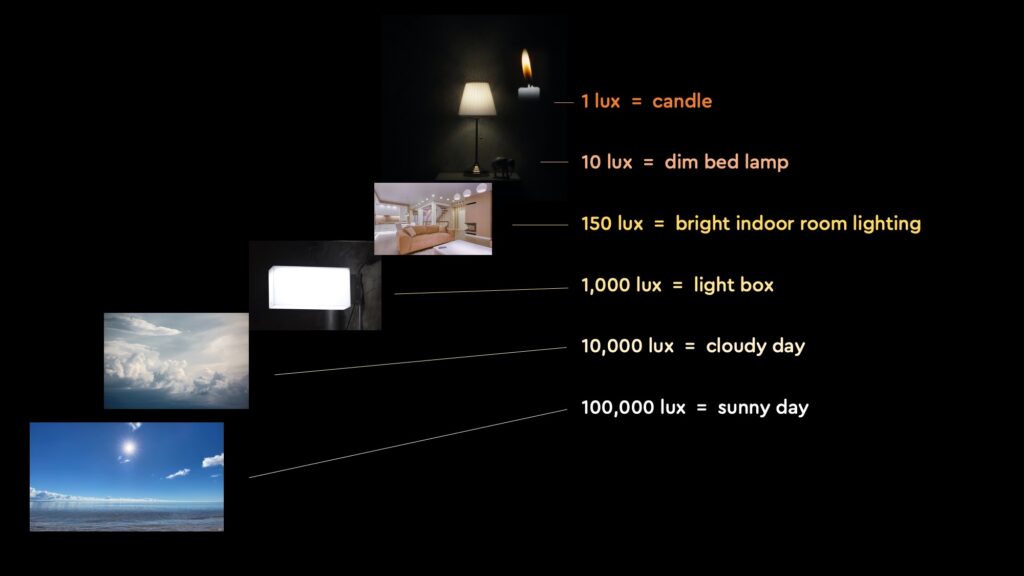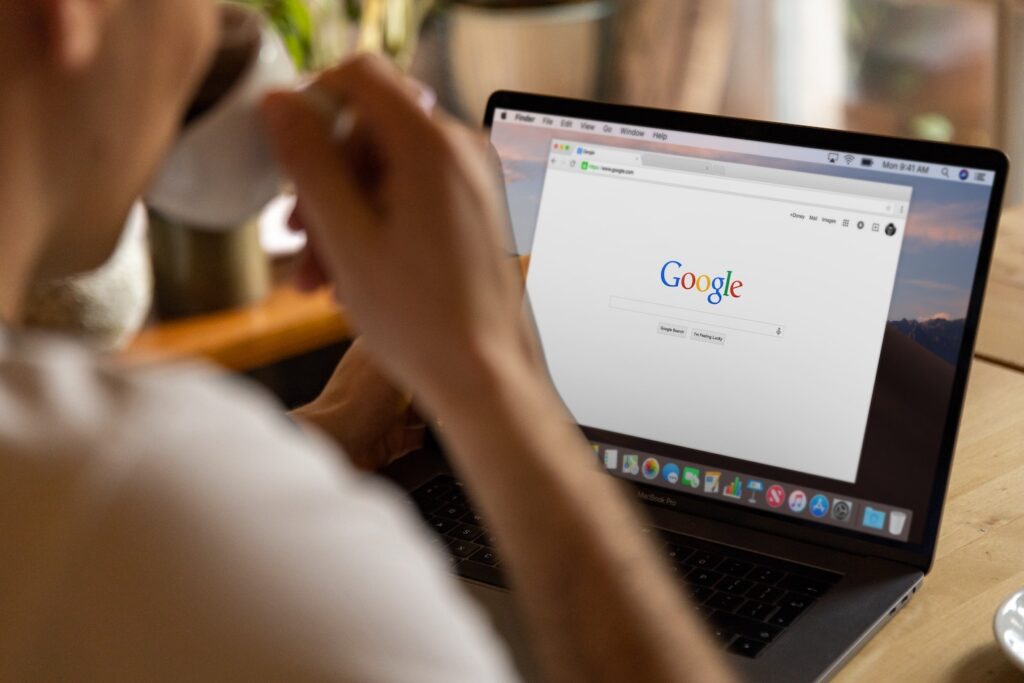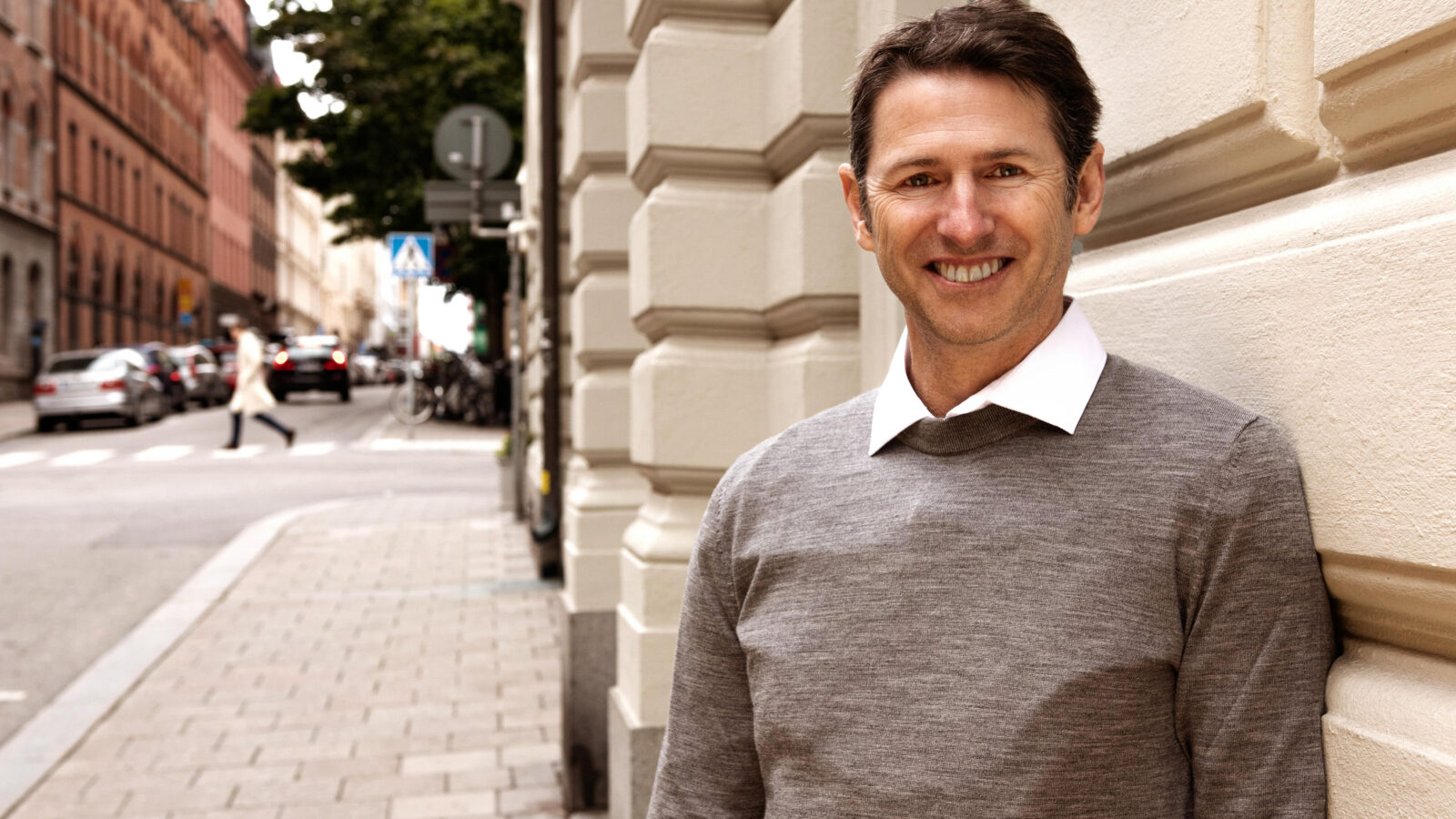Over a decade ago, I recall sitting in pitch blackness on a bed in our sleep laboratory. In one hand, an iPad 2 set on 100% brightness. In the other hand, a lux meter that was going to measure the iPad’s screen brightness.
I took the measurement. My jaw dropped at the reading. Surely, that cannot be right?
50 lux!
Lux can be a measurement of how bright light is when it hits our eyes. Look at these examples below to give you a sense of the bright light that can hit our eyes every day:

We were preparing to perform the world’s first test of bright screens on sleep. We’d read opinion pieces suggesting screens could make it hard to fall asleep because of the light emitted from them. But as yet – no one had confirmed that using a bright screen in the hour before bed meant people found it difficult to fall asleep (ie, taking longer than 30 minutes).
I had already been using evening bright light to help change the timing of people’s 24-hr circadian rhythm. Whether it was to overcome their jetlag (ie, flying from Australia to Europe), dealing with shiftwork, or helping those extreme morning people who would fall asleep after dinner and wake up from 4 AM.
For these circadian timing issues, we used bright artificial light sources known as light boxes, which were around 1,000 lux brightness. Much brighter than modern day screens.

So when I was sitting in the dark with a bright iPad, and the reading came to 50 lux, I realised we might not find that a bright screen made it difficult to sleep.
Sure enough, at the end of the study, it took 11 minutes to fall asleep after using a dim screen in the hour before bed – and only 14 minutes after a bright screen.
We published this world first study in 2014.
Since then, there’s been about 10 further studies, and virtually all of them show that a bright screen doesn’t cause difficulty falling asleep. At most, one study found it took almost 10 minutes longer to fall asleep after using an eReader compared to reading a printed book – but then a study the following year found the opposite – it took 8 minutes longer to fall asleep after reading a book vs an eReader.
Despite the popularity of special glasses to block the ‘alerting effects’ of bright screens, studies show they only add a few minutes more sleep – whether they have been conducted in the USA (4.9 min more sleep), The Netherlands (1 min less sleep) and Japan (5.5 min more sleep).

But here’s a little secret that no one seems to share about the flimsy power of bright artificial light from our screens.
If you get enough bright light during the day, but especially later in the day – whether it’s natural light or even bright indoor light – then the artificial light from screens does not affect you sleep – you will fall asleep OK. You just need to ensure that you attempt sleep at your usual time.
In this way, light during the day is the antidote for artificial screen light at night.
I realise all the above information is confusing. It’s not what you’ve likely heard before. That’s what makes this whole concept – and others – a sleep myth. A separation from the collection of scientific evidence from what people are saying on the internet.

Take for example, what is probably the most popular sleep book, Dr Matthew Walker’s “Why We Sleep” that was published in 2017. A lot of content was put into this book, so not all of the research could be covered. In the section about screen light, a Harvard study is mentioned. This study found that an eReader caused a statistically significant increase in the time taken to fall asleep. But often this is where the story stops.
As mentioned above, the next part of the story is that it took 9.9 minutes longer.
In recent years, Dr Matthew Walker has had time to delve more into all of the science on bright screens and sleep. And he has publicly stated that he has changed his mind on the power of bright screens making it difficult for people to fall asleep. Whether it’s when he’s being interviewed on The Diary of a CEO or by Peter Attia MD.
If one of the world’s foremost experts on sleep can change his mind about the effect of bright screens on sleep – can you too?


